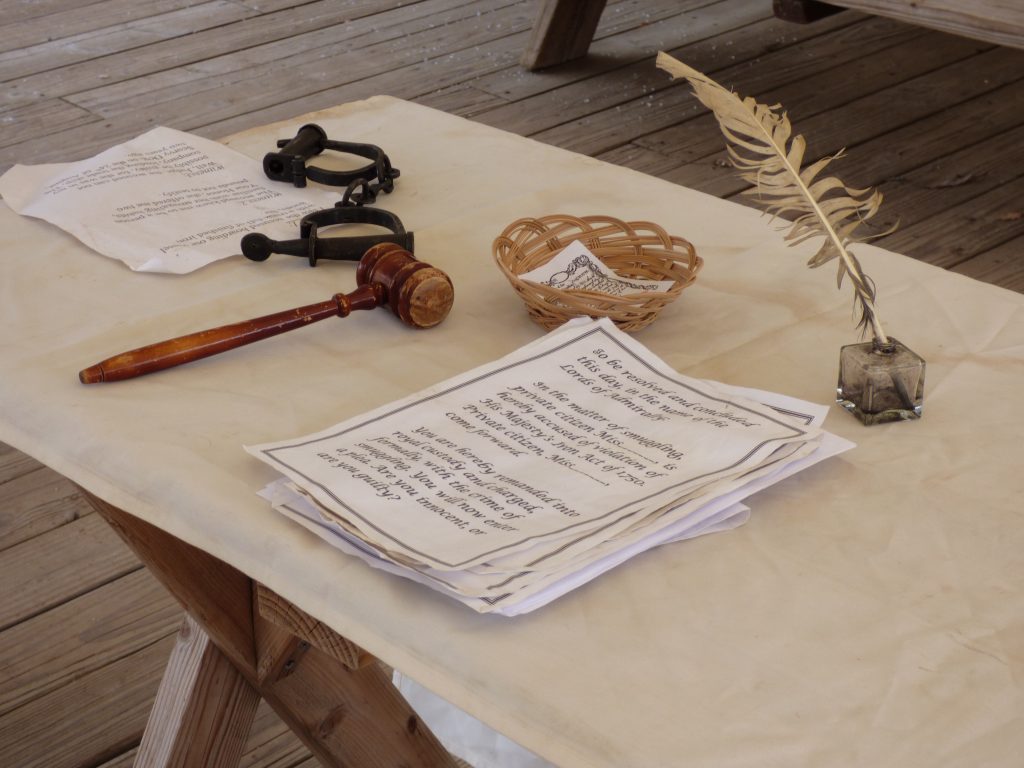 Contracting and subcontracting in the construction industry are standard practices. However, they can create several challenges when a worker is injured. What happens, for instance, when the employee of a subcontractor is injured by a device owned and operated by a municipal government unconnected to the construction project at hand? The Louisiana First Circuit Court of Appeal recently addressed this question when a worker was injured by an overhead power line.
Contracting and subcontracting in the construction industry are standard practices. However, they can create several challenges when a worker is injured. What happens, for instance, when the employee of a subcontractor is injured by a device owned and operated by a municipal government unconnected to the construction project at hand? The Louisiana First Circuit Court of Appeal recently addressed this question when a worker was injured by an overhead power line.
Brendan Sharp was employed by RedIron Construction, a Legacy Construction Services subcontractor. Legacy had been hired by Cummins Mid-South Diesel in Morgan City to construct a building, and Legacy brought RedIron in to install metal siding on the structure’s exterior. Sharp’s injury occurred when he touched one of the metal siding panels to a live overhead power line owned by Morgan City.
Sharp sued for damages, naming only Morgan City as a defendant. Morgan City then filed a third-party demand against both Legacy and RedIron, arguing that Morgan City itself was not liable for any damages due to Legacy’s and RedIron’s failure to comply with Louisiana’s Overhead Power Line Safety Act (OPLSA). La. R.S. 45:141. RedIron and Legacy then filed motions for summary judgment, contending that they were, in fact, in compliance with OPLSA.
 Louisiana Personal Injury Lawyer Blog
Louisiana Personal Injury Lawyer Blog


 When an employee suffers a work injury, it may result in negative consequences for the employee’s health. While Louisiana’s workers’ compensation laws allow the employee to recover damages for these future health complications, this has its limits. The employee must prove that this future negative consequence was related to the initial injury at work. This ensures that employees who are rightfully harmed are compensated while also protecting businesses from having to pay for every future medical problem the employee has.
When an employee suffers a work injury, it may result in negative consequences for the employee’s health. While Louisiana’s workers’ compensation laws allow the employee to recover damages for these future health complications, this has its limits. The employee must prove that this future negative consequence was related to the initial injury at work. This ensures that employees who are rightfully harmed are compensated while also protecting businesses from having to pay for every future medical problem the employee has. When you select someone to serve as a trustee or executor, you expect they will act in your best interest. If someone in such a position of trust breaches that obligation, they might be liable for a breach of fiduciary duties.
When you select someone to serve as a trustee or executor, you expect they will act in your best interest. If someone in such a position of trust breaches that obligation, they might be liable for a breach of fiduciary duties.  A difficult part of dealing with a family member’s death is balancing your grief with having to deal with the practical considerations of administering their estate. This can lead to family conflict, especially when there is disagreement about who gets what. Although clear language in a will or testament can help avoid such disagreement, what happens when the language of the testament and related documentation are unclear about who the deceased wanted to receive specific bank accounts?
A difficult part of dealing with a family member’s death is balancing your grief with having to deal with the practical considerations of administering their estate. This can lead to family conflict, especially when there is disagreement about who gets what. Although clear language in a will or testament can help avoid such disagreement, what happens when the language of the testament and related documentation are unclear about who the deceased wanted to receive specific bank accounts? We all know that words matter. However, sometimes people use offensive or disrespectful words or slurs in the workplace. Workplaces often have policies in place that lay out prohibited behaviors and establish disciplinary actions for infractions, including use of disrespectful language. Such discipline can range from a write-up to termination and depends on the specific offense. Is use of a racial epithet grounds for termination?
We all know that words matter. However, sometimes people use offensive or disrespectful words or slurs in the workplace. Workplaces often have policies in place that lay out prohibited behaviors and establish disciplinary actions for infractions, including use of disrespectful language. Such discipline can range from a write-up to termination and depends on the specific offense. Is use of a racial epithet grounds for termination? When you are in love, you might make purchases for your loved ones without giving them much thought. But what happens to big ticket purchases, like a car, if your relationship sours?
When you are in love, you might make purchases for your loved ones without giving them much thought. But what happens to big ticket purchases, like a car, if your relationship sours? Entering into a settlement agreement can help efficiently resolve a lawsuit and allow both parties to move forward. However, sometimes you might be involved in multiple interrelated lawsuits. If you sign a settlement agreement with one party, are you precluded from pursuing other related litigation?
Entering into a settlement agreement can help efficiently resolve a lawsuit and allow both parties to move forward. However, sometimes you might be involved in multiple interrelated lawsuits. If you sign a settlement agreement with one party, are you precluded from pursuing other related litigation? Buying and selling real estate can be stressful because of the emotions and large sums of money involved. In order to have certainty in transactions involving real estate, Louisiana law has strict requirements of what is required to form a valid contract, including signatures from both the buyer and seller. What happens if a would-be buyer unilaterally signs a contract and claims they own your property?
Buying and selling real estate can be stressful because of the emotions and large sums of money involved. In order to have certainty in transactions involving real estate, Louisiana law has strict requirements of what is required to form a valid contract, including signatures from both the buyer and seller. What happens if a would-be buyer unilaterally signs a contract and claims they own your property?  While involved in a legal dispute, there are strict timelines that must be followed, not only for filing an initial lawsuit, but also for filing any subsequent appeals. However, arguments can arise about what timeline applies to a certain factual situation.
While involved in a legal dispute, there are strict timelines that must be followed, not only for filing an initial lawsuit, but also for filing any subsequent appeals. However, arguments can arise about what timeline applies to a certain factual situation.  Prescription refers to the amount of time you have to file a lawsuit. If you do not comply with this procedural requirement, your case will be dismissed. In order to determine the date by which you must file your lawsuit, you need to know both the prescription period and when the period started to run. This case analyzes when the prescription period starts to run for false imprisonment and false arrest claims.
Prescription refers to the amount of time you have to file a lawsuit. If you do not comply with this procedural requirement, your case will be dismissed. In order to determine the date by which you must file your lawsuit, you need to know both the prescription period and when the period started to run. This case analyzes when the prescription period starts to run for false imprisonment and false arrest claims.